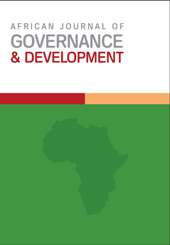Social Issues Affecting Social Cohesion in Low-resource Communities in South Africa
Main Article Content
Abstract
South Africa’s rural communities face significant disparities, marked by high poverty and unemployment, which threaten social cohesion and inclusion. Residents often lack access to essential services and economic opportunities, while social issues like crime, unemployment, and substance abuse further strain these low-resource communities. While extensive research exists on social cohesion in urban settings, there is a notable gap in understanding how social issues such as unemployment, limited access to basic services, and housing insecurity uniquely impact social cohesion in low-resource communities. Therefore, this study seeks to explore the perceptions and experiences of social issues affecting social cohesion in low-resource communities in South Africa, and how one could facilitate the promotion of cohesive communities. This study adopts a qualitative methodological approach to gain a deep understanding of the participants and their lived experiences in low-resource communities. The current study was conducted in four communities within South Africa including Philippolis, Lamberts Bay, Caledon, and Grabouw. The study utilised a qualitative approach, with a phenomenological design, to interview 25 participants which included family members and community stakeholders. In-depth interviews were used for data collection and thematic data analysis. The findings highlight the disruption of societal unity in low-resource communities due to complex family dynamics, pervasive violence, substance abuse, and significant barriers to education. Dysfunctional family structures, historical factors like apartheid, and modern challenges such as urban migration and high unemployment contribute to social disintegration. Also, crime and violence, deeply intertwined with the lack of social cohesion, are exacerbated by historical and socio-economic factors. This highlights the need for comprehensive interventions which requires a multifaceted approach to tackle the underlying drivers of violence and inequality (SDG10) to achieve social cohesion in the face of entrenched inequalities is a formidable challenge, necessitating concerted efforts from both the government and civil society to bridge divides and foster a more inclusive and equitable society. This research emphasises the importance of addressing these complex social issues to build cohesive communities in South Africa’s rural areas.
Article Details

This work is licensed under a Creative Commons Attribution-NonCommercial-NoDerivatives 4.0 International License.
